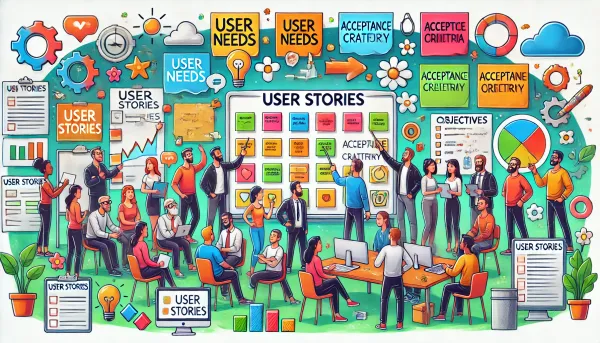Where Did I Go Wrong as a New Technical Lead?
About burnout in IT, my technical lead promotion and things which you should avoid.

The year 2022 was exceptional for me. Being promoted to a technical lead made me officially responsible for the project. Previously, it was somewhat optional; I could do it "on the side" whenever I felt like it. Now, someone put a name to it and, at the same time, installed a light bulb in my head. This light bulb started glowing more and more red with each passing month...
As far back as I can remember, I never took burnout in IT seriously. I thought people were just being spoiled, that from sitting in front of a computer, sipping coffee in the office kitchen, coding a bit, spending some time in meetings ... only to end up with a fat paycheck at the end of the month.
Now I have to transform this team.
That’s what I thought after the promotion. At that time, there was a lot to be done in the project. Big plans regarding changes in architecture, the team, performance, and processes. All of this was supposed to be done by ME. At least, that’s what I believed.
Then, the snowball effect began. It’s ME who has to drive the change. The team’s failures are MY failures. A failed sprint is MY fault. Not having an answer to a question I was asked is MY shortcoming. A task delivered incorrectly is MY problem. I’m the leader. I’m responsible for it.
I think I wasn’t fully ready for my role. Certainly not when it came to working with the team from the position of an official leader (it took many months before I began to understand what my role really was).

Where did I go wrong?
I believe my main difficulty was linking every minor or major failure of the team (or individual members) to myself. There was too much of ME involved.
A few sins piled up.
Micromanagement and getting caught up in the details.
I got too involved in individual issues. I thought it was healthy to review every team member's task before the daily standup to check the current status. I believed I needed to know what was going on in advance so I could give a "spot-on" answer during the meeting if needed. At times, I lacked a high-level perspective. I think I fell into the trap of micromanagement.
I'm so swamped that I don't even have time to load the wheelbarrow.
Being overly meticulous made me constantly busy. Yet at the end of the day, I often ask myself, "What did I actually accomplish today?" The answer was often "Nothing concrete.".
A complete mess.
I simply wasn’t focusing on the truly important things. Of course, in all this tangle of activities, I did do what I was supposed to, but those “extra and unnecessary” tasks drained my energy.
Meetings, meetings...
I attended every meeting I was invited to. That was a huge mistake because I spent time in places where I was completely unnecessary. Many of these meetings were based on the principle of "better invite everyone, just in case."
I used to say, "I won’t get anything done today because I have nothing but meetings." At some point, I accepted that as normal.
Me, me, me.
And perhaps most importantly, I was taking on too much on and off myself. I had mistakenly believed that when the team is failing, it is my fault. If something was left undone in the sprint, I poorly defined the tasks during planning. If I didn’t answer a question… and so on and so forth.
There was too much of me in all of it.
I should have left many issues alone, only monitoring them and stepping in occasionally to set the direction.
What helped me?
Here are a few pieces of advice that helped me get through a difficult time.
Holiday
Step one: take a vacation. Complete disconnection from work for two weeks. A trip to Sicily did wonders for me. 🇮🇹

Focus time
I started using focus time daily. Two hours each day just for me and the tasks that REALLY matter, the things I should be doing. No opening Teams, no checking emails, no helping the team. Just me and the project.
Avoiding meetings
I began avoiding meetings where there was even the slightest chance that I was unnecessary. If a leader’s presence was required, I would suggest someone else attend. As a last resort, I joined.
Education
I expanded my knowledge about being a technical leader. It was about organizing in my mind what I should be focusing on and what is just filler, pretending that I need to handle it.
Psychologist
Well, at that time, I was already regularly attending sessions. My main goal was to get everything off my chest. I almost always left feeling lighter by a few kilograms of emotional burden.
I strongly recommend seeing a psychologist, even if you’re not dealing with any specific disorders. My weekly sessions gave me a huge boost and the understanding that I didn’t have to burden my family with every issue. Naming and shouting out certain things brings significant relief.
Feedback
I regularly made sure to ask for feedback from my manager, and sometimes also from the team members. While there was no issue getting what I asked for from the manager, it was different with the team—not everyone was willing to provide feedback. Creating anonymous surveys helped a bit.
However, remember not to focus only on negative opinions. If positive feedback comes your way, make sure to remember it (or better yet, write it down). As humans, we tend to focus on bad news while ignoring or downplaying the good. Try not to fall into that trap.
Setting boundaries and increasing awareness
Naming the fact that not everything depends on us, and that reality can sometimes be extremely difficult, was very liberating for me. I stopped getting angry at things I couldn’t control (at least I tried). It’s worth recognizing and naming what we can influence and what is beyond our control. This gives us a better chance of using our energy on what truly matters.
Of course, we can still try to influence the latter, but it’s important to have boundaries in place.
How do I talk about this time?
When I talk about that time, I emphasize how difficult it was for me by saying that in November 2023, I was fully longing for a holiday. I had never felt the need for a holiday before. I never felt like I had to rest. Weekends or single days off were enough for me. Of course, I would take holidays, but I never felt the need to leave work and completely disconnect from what was happening there.
On the other hand, the project situation at that time was very challenging. There was a lot going on, and a lot to clean up. This could have also had a significant impact on how I felt then. I wanted to handle everything, but it's not possible to do that alone. It ended with a feeling of frustration.
You know, I still sometimes fall into similar traps that I mentioned earlier, but I quickly get out of them. I wish you mindful decision-making and maintaining boundaries so that you don't have to face burnout.
Cheers! 👋




